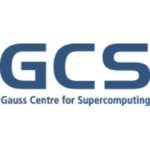In this video from SC18 in Dallas, Scott Tease from Lenovo describes how the company is leading the TOP500 with innovative HPC cooling technologies. “At #8 on the TOP500, the Lenovo-built, hot-water cooled SuperMUC system at the LRZ in Germany is one of the most power efficient supercomputers on the planet. With more than 241,000 cores and a combined peak performance of the two installation phases of more than 6.8 Petaflops.”
Lenovo Takes the TOP500 with Liquid Cooling at ISC 2018
In this video from ISC 2018, Rick Koopman from Lenovo describes the company’s latest HPC innovations including their new Neptune liquid cooling technology. Lenovo is the world’s largest TOP500 supercomputing provider measured by the number of systems ranked on the TOP500 list. 117 of the 500 most powerful supercomputers included in the TOP500 are Lenovo installations, meaning nearly one out of every four systems (23.4 percent) on the prestigious list is a Lenovo solution.
Energy Efficiency and Water-Cool-Technology Innovations at Lenovo
Karsten Kutzer from Lenovo gave this talk at the 2018 Swiss HPC Conference. “This session will discuss why water cooling is becoming more and more important for HPC data centers, Lenovo’s series of innovations in the area of direct water-cooled systems, and ways to re-use “waste heat” created by HPC systems.”
Gauss Centre in Germany Allocates 1 Billion Computing Core Hours for Science
“With the 19th Call for Large-Scale Projects, the GCS steering committee granted a total of more than 1 billion core hours to 17 ambitious research projects. The research teams represent a wide range of scientific disciplines, including astrophysics, atomic and nuclear physics, biology, condensed matter physics, elementary particle physics, meteorology, and scientific engineering, among others.”
Prof. Dieter Kranzlmüller Named Chairman of the Board at LRZ in Germany
Today the Gauss Centre for Supercomputing (GCS) announced that Prof. Dr. Dieter Kranzlmüller is the new Chairman of the Board of Directors at GCS member Leibniz Supercomputing Centre (LRZ).
SuperMUC Helps Discover New Species Critical to Rainforest Ecosystems
Researchers using the SuperMUC cluster in Germany have discovered a set of unknown species in rainforest soils. As described in a new paper published in Nature Ecology and Evolution, their study on microbial diversity in tropical rainforests required over one million CPU hours to complete. “Without the outstanding high performance computing infrastructure in Germany and especially at LRZ, this study would not have been feasible. The availability of SuperMUC constitutes an essential national advantage in the international scientific competition,” states Alexandros Stamatakis.
GCS Centres Successfully Complete Extreme Scaling Workshops
Results are now in from Extreme Scaling Workshops held recently at the Gauss Centres for Supercomputing in Germany. With 20 participating teams, the workshops were designed to improve the computational efficiency of applications by expanding their parallel scalability across the hundreds of thousands of compute cores of the GCS supercomputers JUQUEEN and SuperMUC.
Video: Scientific Insights and Discoveries through Scalable HPC at LRZ
In this video from the Intel HPC Developer Conference at SC15, Prof. Dieter Kranzlmüller from LRZ presents: Scientific Insights and Discoveries through Scalable High Performance Computing at LRZ. “Science and research today relies heavily on IT-services for discoveries and breakthroughs. The Leibniz Supercomputing Centre (LRZ) is a leading provider of scalable high performance computing and other services for researchers in Munich, Bavaria, Germany, Europe and beyond. This talk describes the LRZ and its services for the scientific community, providing an overview of applications and the respective technologies and services provided by LRZ. At the core of its services is SuperMUC, a highly scalable supercomputer using hot water cooling, which is one of the world’s most energy-efficient systems.
SuperMUC Upgraded to 6.8 Petaflops
On Monday, the Leibniz Supercomputing Centre (LRZ) celebrated the expansion of their SuperMUC cluster. Now in production mode, the 6.8 Petaflop “Phase 2” supercomputer is powered by over 241,000 Intel processor cores.
Hornet and SuperMUC to Provide 247 Million Core Hours for Scientific Research
The Gauss Centre for Supercomputing (GCS) reports that the 10th PRACE Regular Call for Proposals resulted in GCS supporting 14 outstanding scientific research projects from eight European countries. A total of 246.93 million core hours of computing time were awarded on GCS supercomputers, including Hornet at HLRS and SuperMUC at LRZ.













